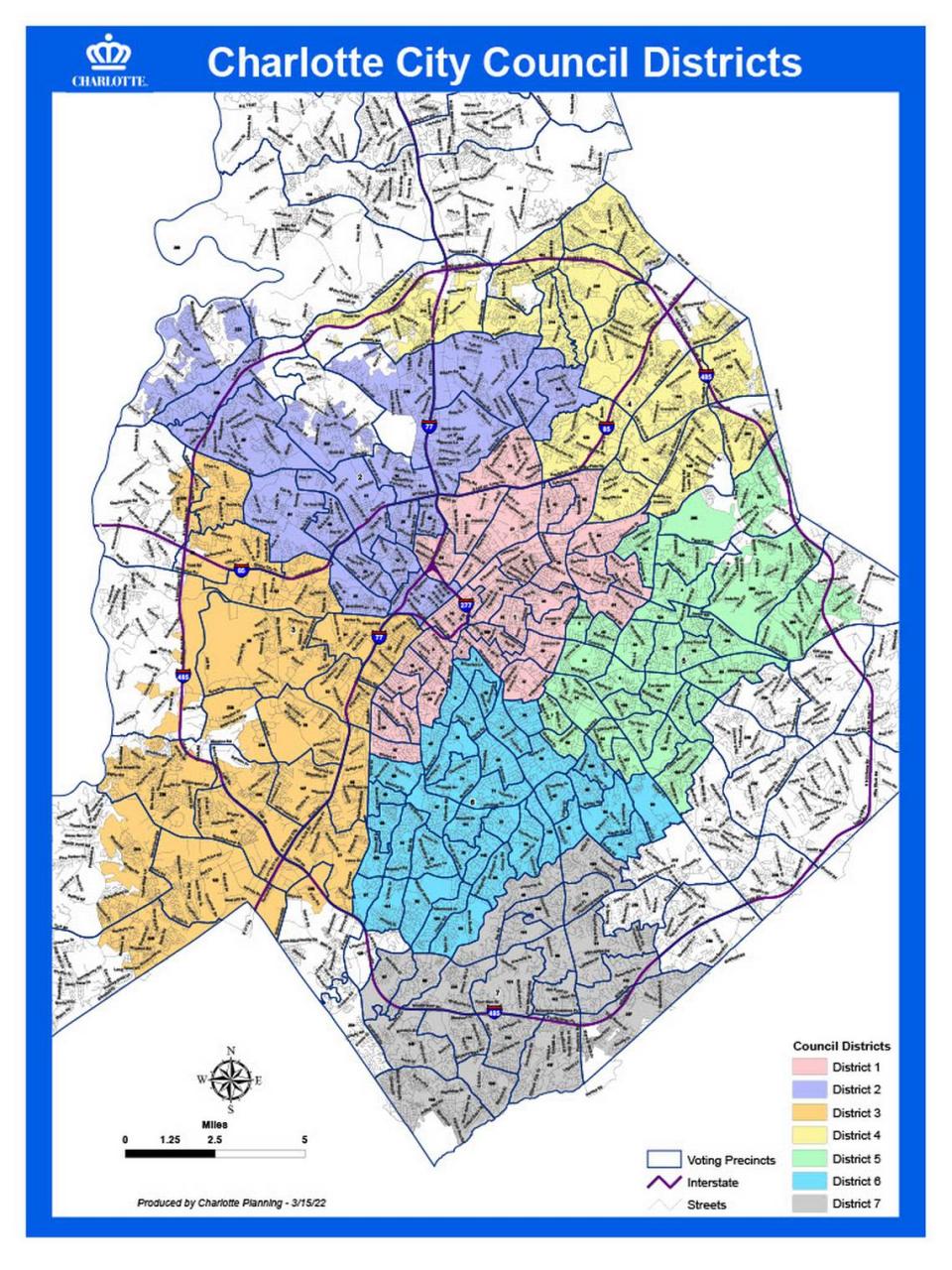It’s Election Day in Charlotte. What to know about voting in the 2023 City Council primary
Low turnout is expected as Charlotte voters head to the polls Tuesday for the city’s municipal primary.
Democrats and unaffiliated voters will pick their nominees for Charlotte mayor and City Council seats. There are no Republican primaries on the ballot in Charlotte this year.
The city’s early voting period, which spanned 10 sites and 12 days, saw fewer than 9,000 cast their ballots. That pace “is already record low,” according to the Mecklenburg County Board of Elections. Because early voting is a major source of ballots cast, the current pace leaves open the possibility of a new all-time low after Election Day.
Polls open at 6:30 a.m. and close at 7:30 p.m. North Carolina’s voter ID law will be in effect at the polls.
Here’s what to know about the 2023 Charlotte primary:
What’s on the ballot in 2023 primary?
Democratic primaries for Charlotte mayor and City Council at-large seats are on the ballot in the 2023 primary. So are Democratic primaries in four of Charlotte’s seven City Council districts.
The City Council district races on the ballot are:
Incumbent Malcolm Graham vs. challenger Gary Young II in District 2, which includes neighborhoods such as Third and Fourth wards and Wesley Heights
Tiawana Brown, Melinda Lilly and Warren F. Turner competing for an open seat in District 3, which includes parts of west Charlotte.
Incumbent Renee Perkins Johnson vs. challengers Olivia Scott and Wil Russell in District 4, which includes University City and other parts of northeast Charlotte
Incumbent Marjorie Molina vs. challengers Curtis Hayes Jr. and Vinroy Reid in District 5, which includes parts of east Charlotte.
And six Democrats are also vying for four at-large seats on the council: Dimple Ajmera, Ben Copeland, James “Smuggie” Mitchell, Charlene Henderson El, LaWana Slack-Mayfield and Victoria Watlington.
Voters must be registered as a Democrat or unaffiliated to vote in the 2023 primaries because there aren’t enough Republicans running this year for a GOP primary for mayor or City Council seats.

How to find your sample ballot
You can check what your exact ballot will include ahead of time through the county Board of Elections website by using your address at apps.meckboe.org/addressSearch_New.aspx.
How to find your polling place
There are two ways to find your polling place for the primary.
You can search using your name via the State Board of Elections at vt.ncsbe.gov/RegLkup. You can also search by your address on the county Board of Elections website at apps.meckboe.org/addressSearch_New.aspx.
Unlike during early voting, when Charlotteans could vote at any of 10 locations across the city, you must vote at your designated polling place on Election Day.
NC voter ID requirements
In the wake of an April ruling by the North Carolina Supreme Court, voters will need to show photo identification to cast a ballot in 2023.
Forms of ID that will be accepted at the polls as long as they are “unexpired, or expired for one year or less,” according to the State Board of Elections, include:
A North Carolina driver’s license
A state ID issued by the North Carolina Department of Motor Vehicles
A U.S. Passport or U.S. Passport card
A driver’s license or non-driver ID from another state, the District of Columbia or U.S. territories, if the “voter registered in North Carolina within 90 days of the election”
Voters can also get a free photo ID from the Mecklenburg County Board of Elections by calling 704-336-2133, emailing Vote@MeckNC.gov or visiting the 741 Kenilworth Ave., Suite 202.
A military ID card issued by the U.S. government, tribal enrollment card issued by a tribe recognized by the state or federal government or an ID card issued by an agency of the U.S. or North Carolina for a public assistance program will also be accepted “regardless of whether the ID contains an expiration or issuance date.”
Some student IDs and government employee IDs will also be accepted, such as student IDs from Davidson College, Johnson C. Smith University, Queens University of Charlotte and UNC Charlotte.
Voters who can’t show an ID will still be allowed to vote but need to fill out an ID Exception Form, the Board of Elections adds.
How low will turnout be in Charlotte primary?
Just 8,371 voters cast ballots during early voting in Charlotte this primary cycle, with an additional 96 voting early by mail. That’s about 1.8% of eligible voters in the election.
Voter turnout was highest at the early voting site in University City in City Council District 4, where incumbent Johnson is facing a heated primary challenge. The early voting site in District 7, where incumbent Ed Driggs has no primary or general election challengers, had the lowest voter turnout.
Turnout “is already record low,” county Board of Elections spokeswoman Kristin Mavromatis told the Observer Monday.
Multiple factors can depress turnout in a primary, county board Director Michael Dickerson noted, including a lack of Republican candidates to bring out GOP voters.
“Typically, you don’t have a primary like this,” he said.
What comes after the Charlotte primary?
If a runoff is needed in any Charlotte elections on the September primary ballot, it will be held on Oct. 10.
The 2023 general election is Nov. 7.
All Mecklenburg County voters will have a $2.5 billion school bond on their ballots in November and vote to fill three at-large seats on the Charlotte-Mecklenburg Schools Board of Education.
Charlotte voters will elect a mayor and City Council members, while voters in Cornelius, Davidson, Huntersville, Matthews, Mint Hill and Pineville will also choose mayors and members of their Boards of Commissioners or Town Councils.

